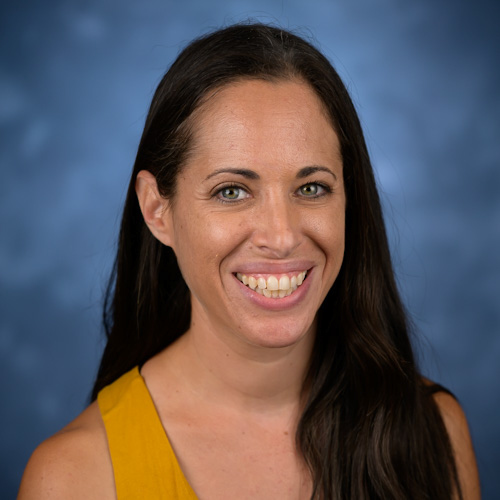Focus Area – Laboratory Animal Medicine
Laboratory Animal Medicine (LAM) is a specialty that combines many elements of veterinary medicine, typically including clinical medicine, surgery, pathology, regulatory compliance, facilities and personnel management, and research. Laboratory animal veterinarians are employed in academia, industry (e.g., pharmaceutical), and government, and have responsibilities for a wide variety of species. There is good demand for laboratory animal veterinarians, which translates into relatively high salaries and benefits compared with private practice.
LAM specialists typically receive training in a post-DVM residency/postdoctoral program that lasts 2-3 years (or more with additional research exposure and/or graduate degree), and which may occur either immediately after the DVM or following practice or other experience; an internship is not required. Residency training positions can be competitive; therefore, good planning and preparation are important during the vet school years.
LAM is a sufficiently broad career path that veterinary students should be careful to avoid too much specialization; it is arguably the ultimate mixed animal practice. Animal handling and clinical skills are important, in a variety of species, and research is at the heart of LAM, even if the lab animal vet is not directly engaged in his/her own research program. Veterinary students interested in LAM should obtain research experience, but also consider developing strengths in other related areas such as pathology, surgery, and large animal or special species husbandry and medicine.
Focus Area Leader
Focus Area Advisors
Steps to pursue a focus in laboratory animal medicine (LAM)
- Identify a mentor/advisor who is a laboratory animal veterinarian
- Plan CVM selectives, electives and other activities with the help of your advisor
- Join the American Society of Laboratory Animal Practitioners (ASLAP) and Student Chapter American Society of Laboratory Animal Practitioners (SCASLAP)
- Make contacts/arrangements for externships during summers and 4th year; strongly consider a summer research experience if prior research experience is limited
- Plan 4th year CVM rotations
Year 1-3 Requirements
- Required to take one of the following two week Selectives:
- Introduction to Laboratory Animal Medicine
- Active Learning in the VH – Lab Animal Medicine
- Extramural Exp Lab Animal Med
- Recommended
- Selectives and electives related to pathology, special species, and research
Year 4 Requirements
To see course descriptions, visit the Clinical Year Course Catalog page.
REQUIRED Rotations
- VMB 976: Radiology
- VMB 977: Anesthesia
- VMP 977: Necropsy
- VMP 978: Clinical Pathology & Lab Med (* if not taken as 3rd-year Selective)
- VMC 971: Medicine/Small Animal [2 consecutive blocks]
- VMC 939: Small Animal Primary Care
- VMC 960: Small Animal Emergency
- VMC 988: Exotic Animal Medicine
- VMC 981: Lab Animal Medicine [* exempt if taken as Selective]
- VMC 955: Extramural Experiences – Lab Animal**
*VMC 981: Lab Animal Medicine is required UNLESS taken as a Selective** prior to 4th Year. If so, TWO blocks of VMC 955: Extramural Experiences-Lab Animal are required.
**Selective required would be VMC 992-308: Active Learning in Lab Animal Medicine.
CHOOSE ONE Surgery Rotation
- VMC 975: Equine Surgery
- VMC 968: Equine Orthopedics
- VMC 973G: Small Animal Surgery
- VMC 973O: Small Animal Orthopedics OR VMC 994O: Extramural Experiences – Small Animal Orthopedics
CHOOSE ONE Small Animal Rotation
- VMC 983: Dermatology
- VMC 986: Advanced Medicine/Small Animal
- VMC 982A: Ophthalmology
CHOOSE TWO Food/Large Animal Rotations (or other VMP courses, with permission)
- VMC 987: Aquatic Medicine (Instructor Approval)
- VMB 980: Clinical Behavior
- VMP 990E: Extramural Experiences – Equine
- VMP 990F: Extramural Experiences – Food Animal/Mixed
- VMP 970: Ruminant Health Management I
- VMP 972: Ruminant Health Management II (Instructor Approval) – Bl. 19: Small Ruminant ONLY
- VMP 996: Ruminant Medicine & Surgery
- VMP 987: Ruminant Special Topics (Instructor Approval)
- VMP 984: Swine Medicine I
- VMP 985: Swine Medicine II (Instructor Approval)
- VMC 940: Theriogenology
Other Experiences
Employment Opportunities/Externships/Funding
Research experience, preferably involving animals, provides excellent background for pursuing a LAM career (including a residency). This experience is best during a summer, rather than a 2-4 week block. The CVM offers a summer research program for veterinary students, involving work in the lab of a CVM faculty member. Summer Internships
There are also student research grant opportunities (Hitchings, Dodge, Morris, etc.).
Another excellent (paid) summer experience is an ASLAP-sponsored Summer Fellowship in Laboratory Animal Medicine.
Research/LAM Opportunities in North Carolina
Contact Dr. McKeon or the Student Chapter American Society of Laboratory Animal Practitioners (SCASLAP) for more details on local opportunities.
- UNC-CH
- Duke University
- NIEHS
- Wake Forest University
- East Carolina University
Other Externship Possibilities
- See the CVM guidelines for extramural experiences
- Several research facilities offer summer programs, externships, clinical rotations, or other educational experiences for veterinary students interested in laboratory animal medicine – see the ASLAP site: https://www.aslap.org/career-development
- NIH Summer Internship Program in Biomedical Research (including the NIEHS in RTP): https://www.training.nih.gov/programs/sip
- Center for Corporate and Government Veterinary Medicine (a resource to help train veterinary students in a variety of non-practice careers): http://www.vetmed.vt.edu/org/md/cpcvm/
- AVMA Student Externship Locator
Conferences
Students may benefit from attending a laboratory animal medicine/science conference. Annual meetings to consider include the following. Check websites at end for home pages of these organizations, which have latest information on upcoming meetings.
- National Meeting of the American Association for Laboratory Animal Science (5-day meeting in October or November); ASLAP offers travel funds on a competitive basis
- American Society for Laboratory Animal Practitioners annual meeting coincides with AALAS meeting
- American College of Laboratory Animal Medicine Annual Forum (4-day meeting in April or May)
- Annual Conference of the American Veterinary Medical Association (5-day meeting in July, usually with 2 full days of laboratory animal medicine-related topics)
- The Charles River Short Course on Laboratory Animal Care and Use is offered annually in June, and scholarships may be available.
- Workshop in Laboratory Animal Medicine (WLAM), sponsored by the North Carolina Academy of Laboratory Animal Medicine (NCALAM) and the North Carolina State Carolina University – College of Veterinary (NCSU-CVM), is offered in May. Check with the CVM Office of Continuing Education.
NCSU-CVM Rounds/Seminars/Journal Clubs
- CBS 817/818 Advanced Topics in Zoological Medicine 1&2. Usually held on Thursdays from 4:15 – 6:00 PM. Lecture, journal review, case presentations and discussion on zoological species.
- Clinical Conference: Fridays, 8:00 a.m. Senior students present topics; some on exotic animal medicine.
- House Officer Seminar: Thursdays, 8:00 a.m. NC State CVM house officers give presentations on a variety of topics.
- Histopathology Rounds – Fridays, 8:00 a.m.
- Gross Pathology Rounds – Wednesdays, 12:15 p.m.
- Research seminars – several ongoing series, as well as guest/invited speakers
Extracurricular Activities
- Student Chapter ASLAP
- PATHHEADS Student Pathology Club
- Wildlife, Avian, Aquatic, and Zoological Medicine Club (WAAZM)
- Turtle Rescue Team
- Wild Carnivore Team
- Invertebrate Medicine Club
Other Useful Information
Recommended Journals
- Journal of the American Association of Laboratory Animal Science
- Comparative Medicine
- Laboratory Animal Practitioner (ASLAP)
- Lab Animal
- Laboratory Animals
Recommended Memberships (Web Sites Below)
- American Society of Laboratory Animal Practitioners (ASLAP) (student membership)
- American Association for Laboratory Animal Science (AALAS)
- American Veterinary Medical Association (student membership)
- Veterinary Information Network (VIN)
Recommended Electronic Mailing List
- CompMed™ is an e-mail list for discussion of comparative medicine, laboratory animals, and topics related to biomedical research. https://www.aalas.org/get-involved/communities/compmed
Useful Internet Sites
- American College of Laboratory Animal Medicine (ACLAM): http://www.aclam.org/
- American Society of Laboratory Animal Practitioners (ASLAP): http://www.aslap.org/
- American Association for Laboratory Animal Science (AALAS): http://www.aalas.org/
- Foundation for Biomedical Research: http://www.fbresearch.org/
- National Association for Biomedical Research: http://www.nabr.org/
- North Carolina Association for Biomedical Research: https://www.ncabr.org/
- Americans for Medical Progress: http://www.amprogress.org/
- Institute for Laboratory Animal Research (ILAR): http://dels.nas.edu/ilar/
- Veterinary Information Network www.vin.com
Recent/Current Number of Laboratory Animal Medicine Focused Students
- Class 2013: 5
- Class 2014: 5
- Class 2015: 3
- Class 2016: 1
- Class 2017: 6
- Class 2018: 4
- Class 2019: 5
- Class 2020: 5
- Class 2021: 6
- Class 2022: 3
- Class 2023: 4
- Class 2024: 0 declared to date

